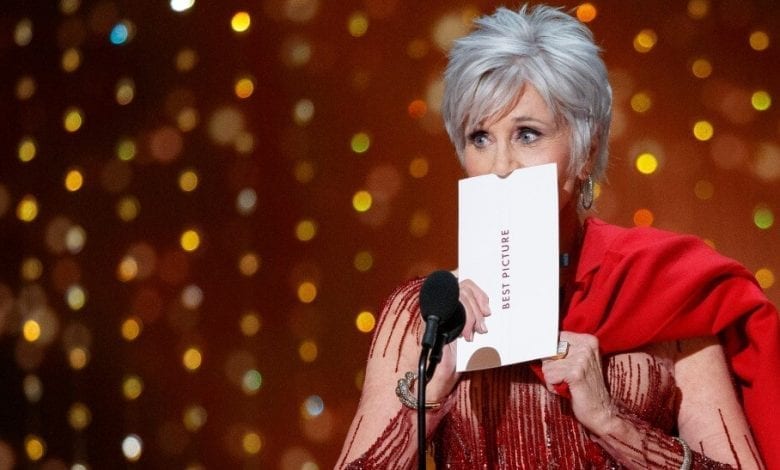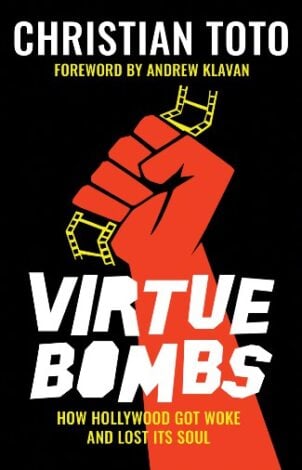Why is Hollywood So Liberal?
Industry insiders peel back curtain on La La Land’s progressive streak

It’s taken as an article of faith that Hollywood leans to the Left. “Veers” is probably more accurate.
Industry voices embrace open border policies, stricter gun control laws, climate change initiatives, higher taxes on the wealthy and a host of other stances ripped from the progressive playbook.
And, of course, stars open their purses and wallets, wide, for Democrats during election cycles.
The small number of right-leaning celebrities can be quickly counted. Think:
- Kevin Sorbo
- Dean Cain
- Kristy Swanson
- Nick Searcy
- Tim Allen
- Adam Baldwin
- Kelsey Grammer
- James Woods
- Scott Baio
- Antonio Sabato, Jr.
- Jon Voight
Others stars may vote like that small group does, but they fear making those views public. That’s a subject for another treatise, of course.
What remains is the obvious, but often unspoken, question. Why? Why does an entire industry, brimming with talent from across the globe, speak in a near unified voice?
RELATED: Hollywood Silent as Cancel Culture Crushes Comedy
Podcast giant Joe Rogan took a whack at the question on his Spotify showcase earlier this year.
“I’ve been in rooms where they discuss politics right away, and you see people bend to whichever way the wind is blowing … they don’t have opinions…. what they have is a conglomeration of opinions they’ve adopted because they think it’ll be good for their careers.”
HiT reached out to three other voices to share their views on the subject.

Sasha Stone is the editor and founder of the long-running site Awards Daily. Stone says “liberal” isn’t the most accurate term to describe today’s Hollywood, though.
“Most people would call it ‘woke,’” Stone says.
Stone partly agrees with Rogan’s take, suggesting the industry’s de facto positioning is pragmatic in nature.
“I can promise you that the majority of people who work in Hollywood find the ‘woke’ orthodoxy oppressive, censorious and inhibiting. They just can’t admit it, not in work meetings, not at job interviews, not online,” she says. “So they keep those views private. I get a lot of letters from people who feel that way.”
Those who speak up, she says, do so to align with accepted industry dogmas.
“In order to continue to sell their products to the upcoming generations they have to cut bait with the Right and sell to the Left. Actors and filmmakers can’t afford to hold any other viewpoint, or their career is over. It’s as simple as that,” Stone says.
Sabato, Jr. has said as much, while Sorbo mainly produces his own projects outside the Hollywood mainstream.
Plus, she says actors think Millennials and Gen Zs are the future, and those demographics more openly embrace a woke mindset.
Modern Hollywood may seem overwhelmingly political in nature, but that wasn’t the case for many years. Stone notes when far-left filmmaker Michael Moore won the Best Documentary Oscar in 2003 for “Bowling for Columbine,” his partisan acceptance speech excoriating President George W. Bush earned plenty of boos.
That was then, she notes.
“In the past 10 years or so, politics have intensified into an ‘us vs. them’ mentality where Hollywood seems to be in the bunker, fighting off the invasion from over the mountain,” says Stone, adding audiences can see that mindset in the films hitting theaters and movie room screens. “They really seem to only make films for people who agree with their politics. They never even question whether it will appeal to anyone outside that bubble.”
RELATED: Here’s Why Liberals Fear The Babylon Bee
Jeffrey Wells, found of the hard-charging entertainment site Hollywood Elsewhere, says it’s the nature of artists to embrace the Left.
“Creative people have always leaned left, which is to say toward freedom of ideas and liberal social values,” Wells says, like equality for women, sexual liberation and more.
That explains why the latter half of the 20th century featured a creative community Wells dubbed “staunchly liberal.”
The industry’s woke transition began after Donald Trump took the oath of office in 2017, he notes. Today’s liberal artist adheres to the woke orthodoxy, but often not by choice, he notes.
“Everyone’s so afraid to say anything that the wokester totalitarians have scared everyone into silence,” Wells says. “This is a truly horrible time to be working in Hollywood.”
Comedian and “Ellen” show writer Adam Yenser says many Hollywood power brokers, from producers to the heads of various guilds and unions, lean left organically.
It’s not an act, as Rogan suggests.
“They live, work, and socialize within an echo chamber that not only reinforces their views, but continuously pressures them to move further left,” says Yenser, an openly conservative comic who hosts a weekly YouTube talk show called “The Cancelled News.” “Even if an individual starts to question the extremism of these positions, they fear personal and professional retaliation if they were to object or fall out of line.”
The irony, he says, is that progressives both fear the new Cancel Culture rules while often denying it exists, as comedians like Marc Maron, Jon Stewart and Bobcat Goldthwait publicly declared.
The industry’s de facto progressive streak has its advantages in the Culture Wars, Yenser says.
“It provides them a massive platform to communicate their ideology while silencing and excluding conservative voices,” he says. “This allows them to create an ugly caricature of who we are without ever giving us a platform to define ourselves.”
Elements of the industry’s progressive mindset, though, come from training.
“There are literally ‘Diversity Equity and Inclusion’ groups within the workplace that specifically advocate leftist political ideologies among staff and in content creation, under the façade of fighting discrimination,” Yenser notes.
“Those on the Right are hesitant or intimidated to engage in political discussions because they know they will be met at best with vitriol and at worst with professional repercussions,” he says.
RELATED: Liberal Comedy Central Cheers Its Own ‘Diversity’
Yenser says the industry cheers the need for diversity at nearly every level but shows little appetite for the ideological kind. He’s personally tried to change that state of affairs with little success.
“This has been one of the most frustrating and disappointing aspects of my experience in Hollywood,” he says, noting how he reached out to producers, bookers and writers on both “Ellen”and other projects about booking guests with diverse points of view.
He also promoted jokes that targeted both sides of the aisle and suggested a less histrionic take on the latest headlines.
“Usually the producers will pay lip service to the idea that they want to be more inclusive, talk to people across the aisle or tone down the divisive rhetoric,” he says, but “that rarely amounts to anything.”
Even DeGeneres’ public embrace of former President George W. Bush backfired behind the scenes.
The moment “led to massive backlash from the left and the show soon shied away from staking out these positions.”
Hollywood liberalism, he argues, directly influences the content flooding into our homes and smart devices.
“You will never see a conversation on mainstream entertainment TV in which the frame is that it is good to be pro-life, good to support the Second Amendment, good to protect our borders from illegal immigration, good to oppose critical race theory, or good to support Donald Trump,” he says, even thought about half the country support some, or all, of those views.
RELATED: Documentaries: From ‘Truth to Power’ to Progressive Propaganda
Stone suggests Hollywood’s far-Left positioning, and the content flowing from that mindset, could permanently damage La La Land.
“I don’t think Hollywood can survive and thrive by narrowcasting. In order for them to tell better stories and to reach more people they are going to have to step out of their partisan bubble,” Stone says. “They will have to humanize the people they don’t agree with politically. They have to see the world through their eyes if they want to keep telling stories about them.”
She says the ongoing pandemic, and the shifting rules regarding theatrical releases and VOD titles, may leave a marketplace less hospitable for the new, woke Hollywood.
“Once the market comes back Hollywood will find out very quickly just how badly their activism plays to the people who actually spend money to watch their movies,” she says.
